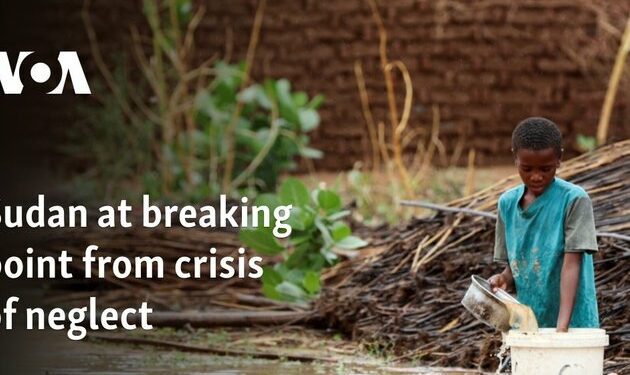In late June, the IPC’s Integrated Food Security Phase Classification Famine Review Committee reported that 13 areas in Sudan are on the brink of famine. On August 1, the committee declared famine in Zamzam Camp in North Darfur, which houses about half a million internally displaced people.
UNICEF estimates 730,000 children are projected to suffer severe acute malnutrition this year, the most life-threatening form of malnutrition.
“Without action, tens of thousands of Sudanese children may die over the coming months,” UNICEF’s Elder warns. “And that is by no means a worst-case scenario. Any disease outbreak will see mortality skyrocket. Disease is our great fear.”
Under current living conditions, and with heavy rains and flooding, he said outbreaks of measles, diarrhea, respiratory infections and other diseases would spread like wildfire.
Aid agencies report they are seriously underfunded and do not have the money to scale up life-saving humanitarian operations to head off tens of thousands of preventable civilian deaths in the coming months.
Elder contends there is a pragmatic as well as moral reason for the international community to support efforts to stave off this impending multi-pronged tragedy.
He notes it is much cheaper to fund a crisis before it reaches “those utterly catastrophic levels of food insecurity for children.”
“We know when there are famine declarations that the money pours in. We also know it is too late. Children are dying. If that famine does spread into some of those 13 areas at risk of famine, the money will flow,” he said, however, “the children will also be dead.”
Source link : http://www.bing.com/news/apiclick.aspx?ref=FexRss&aid=&tid=66bbc9b2ec614c7eb4ba1a98b3ccc6b8&url=https%3A%2F%2Fwww.bignewsnetwork.com%2Fnews%2F274492423%2Fsudan-at-breaking-point-from-crisis-of-neglect&c=7007311701190910839&mkt=en-us
Author :
Publish date : 2024-08-13 09:52:00
Copyright for syndicated content belongs to the linked Source.












